#jack goldstein
Text
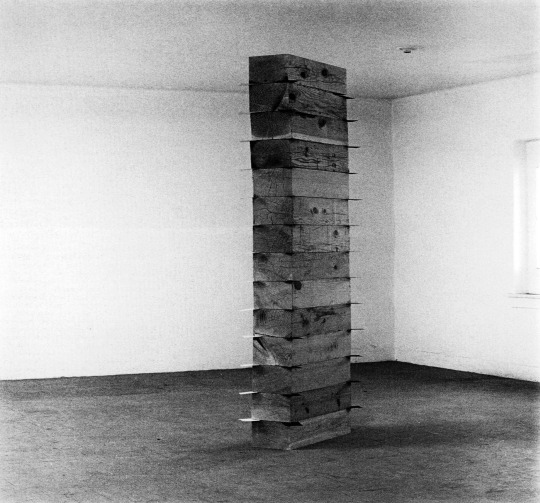
Jack Goldstein, Untitled, 1969-1971
164 notes
·
View notes
Text

Untitled (#61 Burning City) (1981). Jack Goldstein.
15 notes
·
View notes
Text
youtube
The Spectacle, inflated to bursting point...
2 notes
·
View notes
Text
no thoughts today, only ✨️memes✨️ (1/3)
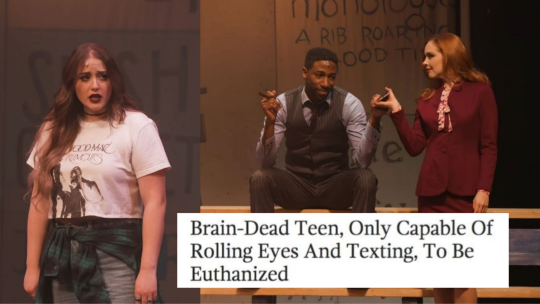

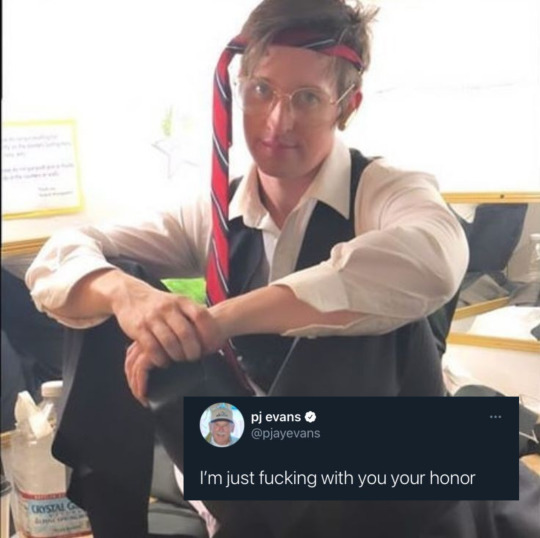
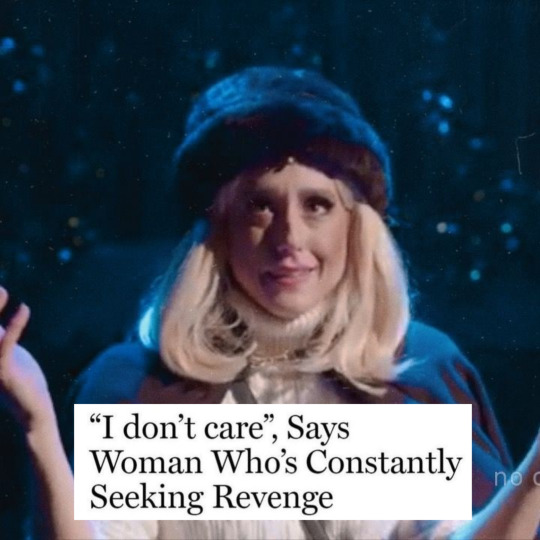


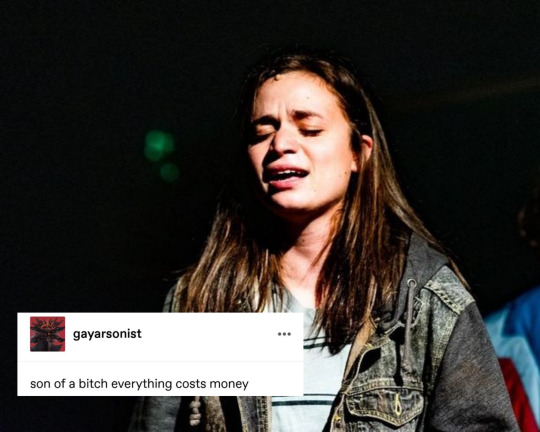
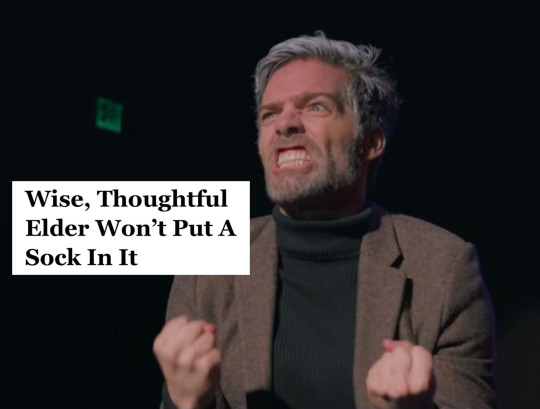
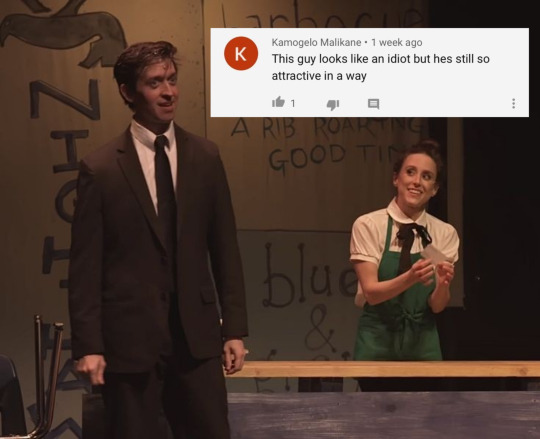
Bailey's stripper jacket my beloved
#jack jabbers#hatchetfield#starkid#hatchetfield memes#incorrect quotes#npmd#nerdy prudes must die#black friday musical#workin' boys#stephanie lauter#solomon lauter#miss tessburger#steph lauter#officer bailey#gary goldstein#linda monroe#wilbur cross#general john macnamara#lex foster#professor hidgens#paul matthews#emma perkins#paulkins
1K notes
·
View notes
Text
This week feeling heavy rain with The Kings of Leon, Snapped Ankles, Emmeline, Horace Andy, Sabada 5, Tara Lily, R.A.P. Ferreria, N.I.N.A., Sun Ra Arkestra, KYANOS, Nicolette, Jack Goldstein, Zito Righi e Seu Conjunto, Balimaya Project and Crow Biliken.
R.A.P. Ferreria and N.I.N.A. come with warnings for language. Depends how good your Brazilian Portuguese is I guess
#spotify#playlist#my playlist#kings of leon#snapped ankles#Emmeline#horace andy#Sabada 5#Tara Lily#r.a.p. ferreira#Hemlock Ernst#N.I.N.A.#Rennan Guerra#Patrick Laplan#sun ra arkestra#KYANOS#Nicolette#Jack Goldstein#Zito Righi e Seu Conjunto#Balimaya Project#Crow Biliken
0 notes
Text

Jack Goldstein
Canada, 1945-2003
Untitled, 1988
Acrylic on canvas
By bringing digital images into the physical world, Goldstein calls attention to different kinds of perception. Fascinated by how new technologies like radar and advanced telescopes perceive phenomena imperceptible to the human eye, Goldstein takes one such computer-generated image and alters it with an airbrush and stencils, making artistic marks with mediating technologies. The result is a hybrid image made by both man and machine, suggesting alternate ways of knowing.
1 note
·
View note
Text
so like whats... happening...
keeley x jamie? keeley x roy?? roy x jamie??? roy x keeley x jamie???? keeley x jack with a steel chair?????
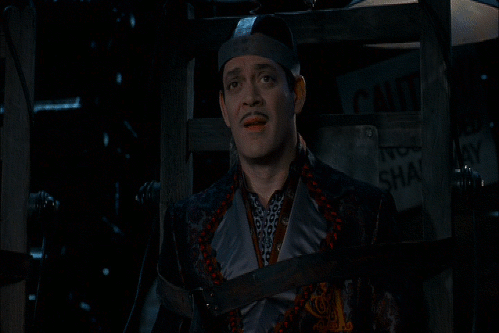
#ted lasso season 3#jamie tartt#keeley jones#ted lasso jack#roy kent#phil dunster#juno temple#brett goldstein#roy x keeley#roy x jamie#jamie x keeley#jamie x keeley x roy#apple tv#ted lasso spoilers#ted lasso
510 notes
·
View notes
Text
The problem with Ted Lasso S3
It doesn’t feel like the last season.
Let’s imagine Ted Lasso was like any other show, slated to keep running until it eventually concluded after 5 or even 10 seasons. If we as viewers knew this, would these episodes feel so lopsided? Would the missing thematic tie-ins feel so odd? Would new characters and plot points feel like frustrating distractions?
Even with the entire season written and filmed, Apple is still not letting anyone doing press for the show say outright this is the last season. Why? To make space for a spin off? Or....maybe this isn’t the last season after all?
Either way, it definitely seems like the writers room were given the directive to not make these episodes feel like they’re leading to an end. And they certainly do not. However the strength of Ted Lasso has always been the foresight of the writers. Every character, line, and scene felt meaningful because they were - everything lead to an inevitable end. Without that, we’re left with a show that doesn’t feel bad per se. But definitely off.
#ted lasso#Ted Lasso Season 3#ted lasso s3#apple tv#jason sudeikis#brendan hunt#Joe Kelly#Brett Goldstein#bill lawrence#Coach Beard#Roy Kent#Jamie tartt#keely jones#Rebecca Welton#nathan shelley#Nate Shelley#Colin Hughes#jack danvers#sam obisanya#trent crimm
92 notes
·
View notes
Text
Juxtaposing arguments Roy/Keeley & Jack/Keeley
Ted Lasso does parallels extremely well using the mise en scène - the physical aspects - the position of actors, the lighting, the music, to parallel or juxtapose two similar situations, physically manifesting the emotional response expected from the scene.
The fight between Jack & Keeley in her house last week was such a parallel to the one Roy & Keeley had in S2E7 Headspace & it showed the difference in their relationships.
Other than when they are standing, I’ve noticed that Roy is often lower than Keeley. We see him kneeling before her several times in S2, for example.
In S2E7 where they fight, Roy comes into the room and sits on the floor beneath Keeley so that when Keeley erupts, she’s higher than him. In fact, she stands on the sofa so that physically she is still higher than him when they fight.
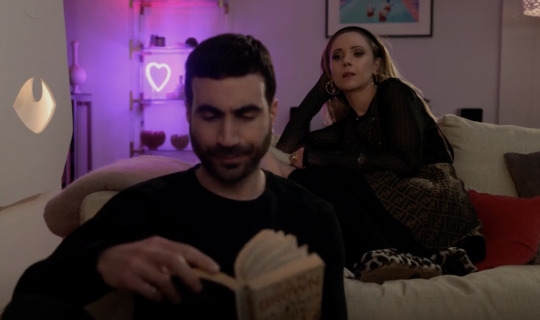
At the time, I thought this was a clever way to diffuse Roy’s physical dominance in an argument with her because Keeley is so petite. It would “calm” the audience so that even if Roy raised his voice, they wouldn’t worry for Keeley.
Now juxtaposition Keeley’s fight with Jack last week. It’s Keeley in the lower position on the couch. Jack is standing for almost the whole time until she sits and turns off the show Keeley was watching. Keeley is already feeling small because of her situation. Jack is wearing the colour red. She is aggressive and negative. (Note, it's not the only time that Jack is "above" Keeley in scenes.)

When Roy was upset in Headspace, he looked away from Keeley before he said, “F%ck this” - not “f%ck you”. His language to her has always been purposeful. He was angry and disparaged the situation, not her, before leaving.
Whereas Jack belittled her telling her what she did was a "porno” and maybe she shouldn’t have done it in the first place.
Another small parallel is that Keeley was watching Sex and the City in both instances. I don't know if the scenes were also parallels because I never watched the show. I'll leave that to experts :)
I don't think Jack will come back, but Roy did in that instance and came back in a way that Keeley's character needed. I have a whole other theory of why the bath scene is sooooo important to Keeley - but that's for another day. ;)
I've also found that Keeley's house has been lit darker this season overall as if to reflect her mood. I'm sure there are a million other parallels but these are the ones that jump out at me.
I would also say that Roy & Keeley's discussion in the parking lot was shot at an angle to again, ensure that Roy didn't loom largely over the petite Keeley. And in my heart? His question has to be a misdirect from the show. They've written Roy all season to be dark and for us to think he's a lost cause, so that when Jamie comes to her you think things might be rekindled. I don't think that's the case. I don't think it ever was.
I also refuse to believe Roy would ask that question at that moment unless it had a different meaning than the obvious one. As mentioned, Roy's language, his choice of words to Keeley has always been purposeful, and never disparaging. A question like that is too self-absorbed and would obviously hurt Keeley. I think Roy's redemption will begin in S3E9. If it's not, it's been character assassination for no real reason, and I just don't think that's the show's intention.
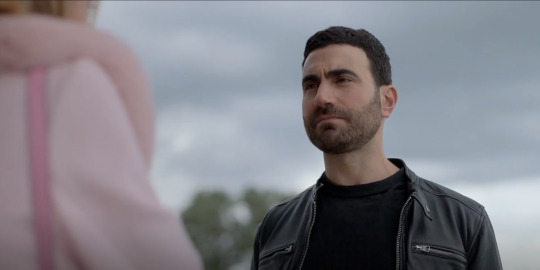
#roy x keeley#roy kent#keeley jones#roy kent keeley jones#keeley/roy#roy and keeley#keeley x roy#ted lasso#brett goldstein#roykeeley#reeley#roy & keeley#jack danvers#parallels#mise en scène#juxtaposition#camera angles
69 notes
·
View notes
Text
Before:
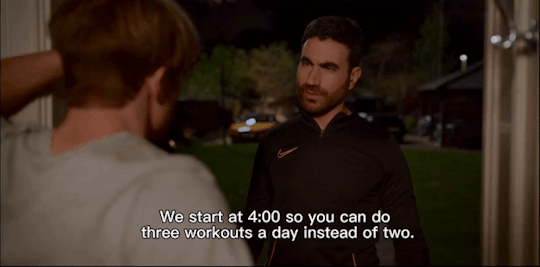

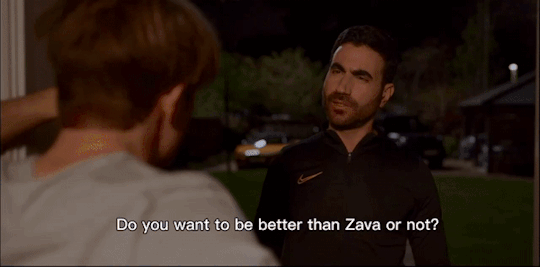



After:
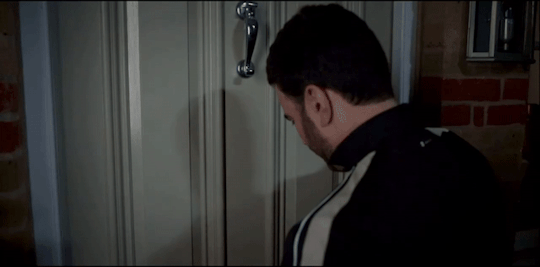
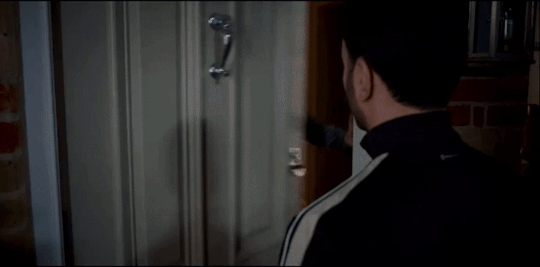

Say all you want, but Jamie Tartt has the best character development throughout the series.
Ted Lasso S03E04: Big Week
#ted lasso#jamie tartt#roy kent#phil dunster#brett goldstein#i used to dislike jamie now i love him 🫶🏻#and yes his hair is so jack grealish-y this season#also roy and jamie’s relationship is getting better and better 🥹🫶🏻
145 notes
·
View notes
Text
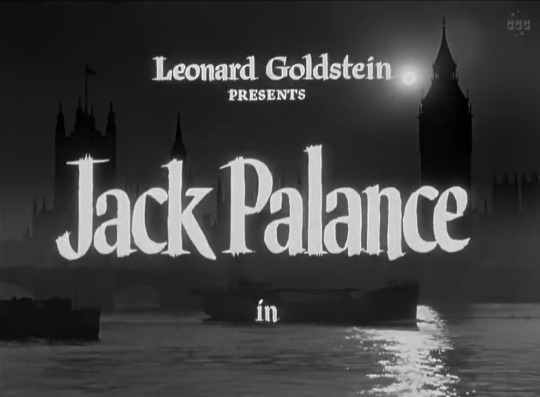

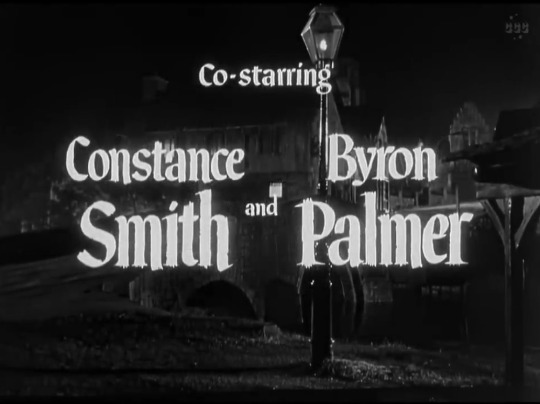
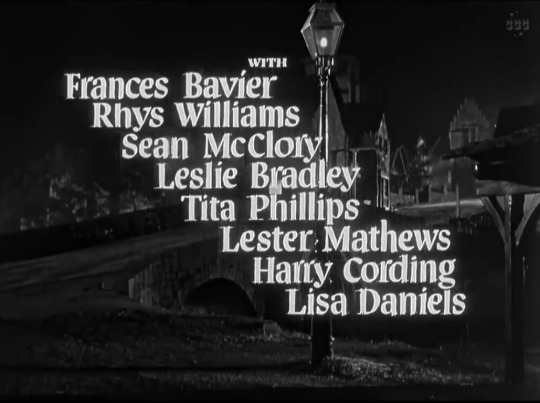
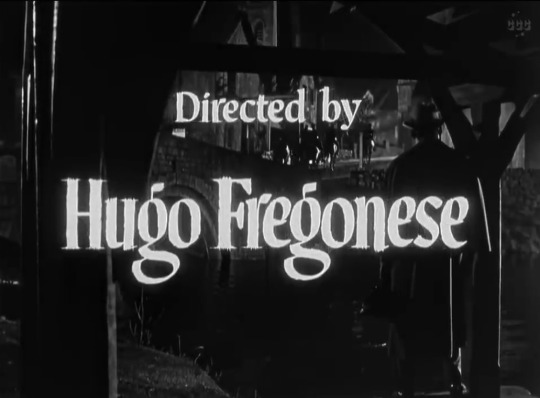

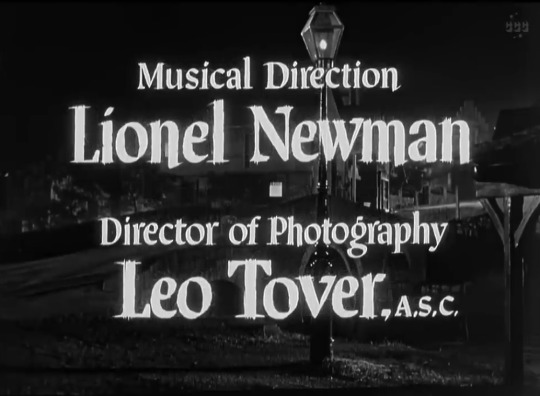

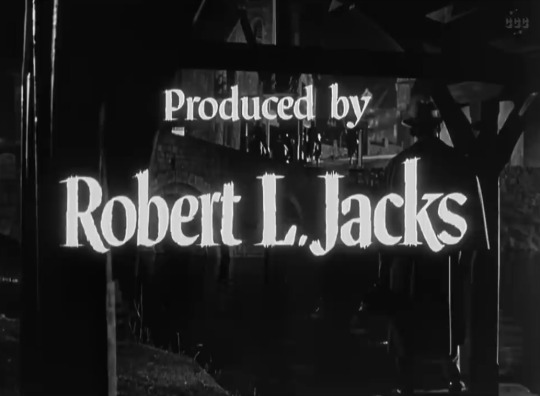

#man in the attic#hugo fregonese#1958#jack palance#constance smith#byron palmer#leonard goldstein#barre lyndon#lionel newman#leo tover#obst & gemüse oder der kunde ist könig#fresh fruit for rotting vegetables#the strange case of dr. jekyll and mr. hyde#the phantom of the opera#the lodger#the elephant man#when a man loves#frau warrens gewerbe
8 notes
·
View notes
Text
"We'll Never Have Paris" gives me hope that perhaps Ted Lasso won't hear its final whistle — at least not anytime soon.
I wrote about the Love Hounds, team building, and why I hope better things are ahead for Keeley.
As always, if you like my review and want to support me, please click the link above and this one to engage with my tweet. After some recent changes on Twitter, any engagement is appreciated and helpful.

#ted lasso#tv: ted lasso#ted lasso season 3#ted lasso s3#ted lasso spoilers#jason sudeikis#brendan hunt#coach beard#toheeb jimoh#sam obisanya#keeley jones#juno temple#keeley x jack#roykeeley#roy kent#brett goldstein#phil dunster#jamie tartt#colin hughes#leslie higgins#trent crimm#isaac mcadoo#hannah waddingham#tedbecca#rebecca welton#rebecca x ted#ted x rebecca#writing#roy x keeley#keeley x roy
12 notes
·
View notes
Photo

A young Jacob “Jack Kirby” Kurtzberg and his wife, Rosalind “Roz” Goldstein-Kirby colorized.
4 notes
·
View notes
Text
Il potere della parola - J. Kornfield, J. Goldstein
Il potere della parola – J. Kornfield, J. Goldstein
Esistono diverse situazioni durante cui diamo per scontato apriori di esser presenti a noi stessi e a ciò di cui ci stiamo occupando. Una di queste circostanze corrisponde al nostro lieto o mordace, tranquillo o relativamente eccitato, sincero o in apparenza piuttosto interessato, interloquire. Non solo con gli altri, ma finanche con noi stessi. Ebbene, l’approccio in questione è davvero…

View On WordPress
#buddhismo#consapevolezza#guarire#Jack Kornfield#Joseph Goldstein#meditare#meditazione#parole#potere#risorse#saggezza
0 notes
Text
Boeing, Spirit and Jetblue, a monopoly horror-story
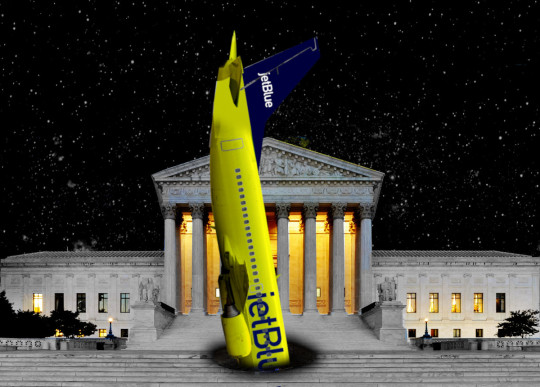
Catch me in Miami! I'll be at Books and Books in Coral Gables TONIGHT (Jan 22) at 8PM. Berliners: Otherland has added a second date (Jan 28) for my book-talk after the first one sold out - book now!

Last week, William Young, an 82 year old federal judge appointed by Ronald Reagan, blocked the merger of Spirit Airlines and Jetblue. It was a seismic event:
https://storage.courtlistener.com/recap/gov.uscourts.mad.254267/gov.uscourts.mad.254267.461.0_6.pdf
Seismic because the judge's opinion is full of rhetoric associated with the surging antitrust revival, sneeringly dismissed by corporate apologists as "hipster antitrust." Young called America's airlines and "oligopoly," a situation he blamed on out-of-control mergers. As Matt Stoller writes, this is the first airline merger to be blocked by the DOJ and DOT since deregulation in 1978:
https://www.thebignewsletter.com/p/antitrust-enforcers-block-the-jetblue
The judge wasn't shy about why he was reviving a pre-Jimmy Carter theory of antitrust: "[the merger] does violence to the core principle of antitrust law, 'to protect] markets –- and its market participants — from anticompetitive harm."
The legal arguments the judge advances are fascinating and worthy of study:
https://twitter.com/johnmarknewman/status/1747343447227519122
But what really caught my eye was David Dayen's American Prospect article about the judge's commentary on the state of the aviation industry:
https://prospect.org/infrastructure/transportation/01-19-2024-how-boeing-ruined-the-jetblue-spirit-merger/
Why, after all, have Spirit and Jetblue been so ardent in pursuing mergers? Jetblue has had two failed merger attempts with Virgin, and this is the third time they've failed in an attempt to merge with Spirit. Spirit, meanwhile, just lost a bid to merge with Frontier. Why are these two airlines so obsessed with combining with each other or any other airline that will have them?
As Dayen explains, it's because US aviation has been consumed by monopoly, hollowed out to the point of near collapse, thanks to neoliberal policies at every part of the aviation supply-chain. For one thing, there's just not enough pilots, nor enough air-traffic controllers (recall that Reagan's first major act in office was to destroy the air traffic controller's union).
But even more importantly, there are no more planes. Boeing's waitlist for airplane delivery stretches to 2029. And Boeing is about to deliver a lot fewer planes, thanks to its disastrous corner-cutting, which grounded a vast global fleet of 737 Max aircraft (again):
https://prospect.org/infrastructure/transportation/2024-01-09-boeing-737-max-financial-mindset/
The 737 disaster(s) epitomize the problems of inbred, merger-obsessed capitalism. As Luke Goldstein wrote, the rampant defects in Boeing's products can be traced to the decision to approve Boeing's 1997 merger with McDonnell-Douglas, a company helmed by Jack Welch proteges, notorious for cost-cutting at the expense of reliability:
https://prospect.org/infrastructure/transportation/2024-01-09-boeing-737-max-financial-mindset/
Boeing veterans describe the merger as the victory of the bean-counters, which led to a company that chases short-term profits over safety and even the viability of its business:
https://www.airliners.net/forum/viewtopic.php?t=213075
After all, the merger turned Boeing into the single largest exporter in America, a company far too big to fail, teeing up tens of billions from Uncle Sucker, who also account for 40% of Boeing's income:
https://www.thebignewsletter.com/p/its-time-to-nationalize-and-then
The US government is full of ex-Boeing execs, just as Boeing's executive row is full of ex-US federal aviation regulators. Bill Clinton's administration oversaw the creation of Boeing's monopoly in the 1990s, but it was the GOP that rescued Boeing the first time the 737 Maxes started dropping out of the sky.
Boeing's biggest competitor is the state-owned Airbus, a joint venture whose major partners are the governments of France, Spain and Germany – governments that are at least theoretically capable of thinking about the public good, not short-term profits. Boeing's largest equity stakes are held by the Vanguard Group, Vanguard Group subfiler, Newport Trust Company, and State Street Corporation:
https://prospect.org/blogs-and-newsletters/tap/2024-01-18-airbus-advantage/
As Matt Stoller says, America has an airline that the public bails out, protects, and subsidizes but has no say over. Boeing has all the costs of public ownership and none of the advantages. It's the epitome of privatized gains and socialized losses.
This is Reagan's other legacy, besides the disastrous shortage of air-traffic controllers. The religious belief in deregulation – especially deregulation of antitrust enforcement – leads to a deregulated market. It leads to a market that is regulated by monopolists who secretly deliberate, behind closed board-room doors, and are accountable only to their shareholders. These private regulators are unlike government regulators, who are at least nominally bound by obligations to transparency and public accountability. But they share on thing in common with those public regulators: when they fuck up, the public has to pay for their mistakes.
It's a good thing Boeing's executives are too big to fail, because they fail constantly. Boeing execs who are warned by subcontractors of dangerous defects in their planes order those subcontractors to lie, or lose their contracts:
https://www.levernews.com/boeing-supplier-ignored-warnings-of-excessive-amount-of-defects-former-employees-allege/
As a result of Boeing's mismanagement, America's only aircraft supplier steadily has lost ground to Airbus, which today enjoys a 2:1 advantage over Boeing. But it's not just Boeing that's the weak link aviation. US aviation is a chain entirely composed of weak links.
Take jet engines: Pratt & Whitney are Spirit's major engine supplier, but these engines suck as much as Boeing's fuselages. Much of Spirit's fleet is chronically grounded because the engines don't run. The reason Spirit buys its engines from those loveable goofballs at Pratt & Whitney? The Big Four airlines have bought all the engines for sale from other suppliers, leaving smaller airlines to buy their engines from fat-fingered incompetents.
This is why – as Dayen notes – smaller US airlines are so horny for intermarriage. They can't grow by adding routes, because there are no pilots. Even if they could get pilots, there'd be no slots because there are no air traffic controllers. But even if they could get pilots and slots, there are no planes, because Boeing sucks and Airbus can't make planes fast enough to supply the airlines that don't trust Boeing. And even if they could get aircraft, there are no engines because the Big Four aviation cartel cornered the market on working jet engines.
Part of Jetblue and Spirit's pitch was that they hand off the routes that they'd cut after their merger to other small airlines, like Frontier and Allegiant. But Frontier and Allegiant can't service those routes: they don't have pilots, slots, planes or engines.
Spirit hasn't been profitable since 2019 and is sitting on $4b in debt. Jetblue was proposing to finance its acquisition with another $3.5b in debt. The resulting airline could only be profitable by sharply cutting routes and massively raising prices, cutting 6.1m seats/year. With a debt:capital ratio of 111%, the company would have no slack and would need a bailout any time anything went wrong. Not coincidentally, the Big Four airlines also have debt:capital ratios of about 100-120%, and they do get bailouts ever time anything goes wrong.
As William McGee reminds us, it's been 14 years since anyone's started a new US airline:
https://twitter.com/WilliamJMcGee/status/1747363491445375072
US aviation is deeply cursed. But Boeing's self-disassembling aircraft show us why we can't fix it by allowing mergers: private monopolies, shorn of the discipline of competition and regulation, are extraction machines that turn viable businesses into debt-wracked zombies.
This is a subject that's beautifully illustrated in Dayen's 2020 book Monopolized, in the chapter on health care:
https://pluralistic.net/2021/01/29/fractal-bullshit/#dayenu
The US health care system has been in trouble for a long time, but the current nightmare starts with the deregulation of pharma. Pharma companies interbred with one another in a string of incestuous marriages that produced these dysfunctional behemoths that were far better at shifting research costs to governments and squeezing customers than they were at making drugs. The pharma giants gouged hospitals for their products, and in response, hospitals underwent their own cousin-fucking merger orgy, producing regional monopolies that were powerful enough to resist pharma's price-hikes. But in growing large enough to resist pharma profiteering, the hospitals also became powerful enough to screw over insurers. Insurers then drained their own gene pool by combining with one another until most of us have three or fewer insurers we can sign up with – companies that are both big enough to refuse hospital price-hikes, and to hike premiums on us.
Thus monopoly begets monopoly: with health sewn up by monopolies in medical tech, drugs, pharmacy benefit managers, insurance, and hospitals, the only easy targets for goosing profits are people:
https://pluralistic.net/2022/01/05/hillrom/#baxter-international
This is how you get a US medical system that costs more than any other rich nation's system to operate, delivers worse outcomes than those other systems, and treats medical workers worse than any other wealthy country.
Now, rich people can still buy their way out of this mess, but you have to be very rich indeed to buy your way out of the commercial aviation system. There's a lot of 1%ers who fly commercial, and they're feeling the squeeze – and there's no way they're leasing their own jets.
Stein's Law holds that "anything that can't go on forever will eventually stop." America's aviation mergers – in airlines, aircraft and engines – have hollowed out the system. The powerful, brittle companies that control aviation have so much power over their workforce that they've turned air traffic controller and pilot into jobs that no one wants – and they used their bailout money to buy out the most senior staff's contracts, sending them to early retirement.
Now, I'm with the people who say that most of US aviation should be replaced with high-speed rail, but that's not why our technocrats and finance barons have gutted aviation. They did it to make a quick buck. A lot of quick bucks. Now the system is literally falling to pieces in midair. Now the system is literally on fire:
https://www.nytimes.com/2024/01/19/us/miami-boeing-plane-engine-fire.html
Which is how you get a Reagan appointed federal judge issuing an opinion that has me punching the air and shouting, "Yes, comrade! To the barricades!" Anything that can't go on forever will eventually stop. When the system is falling to pieces around you, ideology disintegrates like a 737 Max.

I'm Kickstarting the audiobook for The Bezzle, the sequel to Red Team Blues, narrated by @wilwheaton! You can pre-order the audiobook and ebook, DRM free, as well as the hardcover, signed or unsigned. There's also bundles with Red Team Blues in ebook, audio or paperback.

If you'd like an essay-formatted version of this post to read or share, here's a link to it on pluralistic.net, my surveillance-free, ad-free, tracker-free blog:
https://pluralistic.net/2024/01/21/anything-that-cant-go-on-forever/#will-eventually-stop

Image:
Vitaly Druchenok (modified)
https://commons.wikimedia.org/wiki/File:ECAir_Boeing_737-306_at_Brazzaville_Airport_by_Vitaly_Druchenok.jpg
CC BY-SA 4.0
https://creativecommons.org/licenses/by-sa/4.0/deed.en
--
Joe Ravi (modified)
https://commons.wikimedia.org/wiki/File:Panorama_of_United_States_Supreme_Court_Building_at_Dusk.jpg
CC BY-SA 3.0
https://creativecommons.org/licenses/by-sa/3.0/deed.en
#pluralistic#aviation#antitrust#monopoly#boeing#jetblue#spirit airlines#oligopoly#air traffic controllers#airbus#steins law
248 notes
·
View notes



